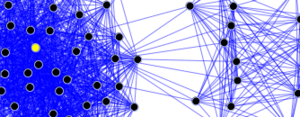All year, I’ve heard some variation of this phrase: “A big shift, from search to discovery, is underway online.” I’m still figuring out what this means. I’d like to share my thoughts on it, and I’d like to hear what “discovery” on the web means to you.
First, I do not believe that there is a “shift” from search to discovery. “Shift” isn’t the right word, because people will continue to search based on specific intent for years. Second, although discovery won’t replace search outright, discovery can impact it significantly by changing how and/or where we search. Third, there are two types of discovery that matter: (1) discovery that leads to a transaction; and (2) discovery that does not end in a transaction.
With this working definition of online “discovery,” perhaps we can now say: “A big shift underway is that the act of discovery could come online, could impact how we search, and could help drive transactions.“
Before social networks solidified, when we bought something online, it was likely the decision process that kicked off that transaction began offline (browsing Amazon and eBay for the fun of it notwithstanding). Discovery largely originated in the real world. Now that more folks are online (and logged into various social networks), the top of the “decision funnel” is starting to originate for many online, not offline. In other words, the origin of a decision to purchase something may be triggered while we’re online, most likely because we are actively interacting with or passively observing someone we know (friend) or someone we’re interested in (follow).
As discovery comes online, it certainly won’t replace search, but it could impact it over time. One of the main challenges is our current online behavior. Google is so effective at helping us find relevant information that skeptics caution that even if a user discovers something online to buy, he or she will likely visit Google to find it. Therefore, in order for discovery to have a meaningful impact, social networks that help users discover things by using data to personalize and target information, will also have to create strong incentives for users not to jump over to Google to satisfy their intent and find a way to make a purchase.
For instance, if the system knew what item we discovered, could it recognize the item and provide pricing options and store destinations, like a targeted advertisement? What if the user who helped another person discover something gets a piece of the search revenue? In this scenario, a user theoretically wouldn’t have to visit Google because the conversion from discovery to search to transaction would happen in-house. The site that ignites discovery would be rewarded with that search revenue, but in order to make a real impact, discovery would need to happen at scale for many people. That could take a while.
If discovery can scale, change behavior, and drive a different type of transaction in the future, could the transactions also be streamlined?









